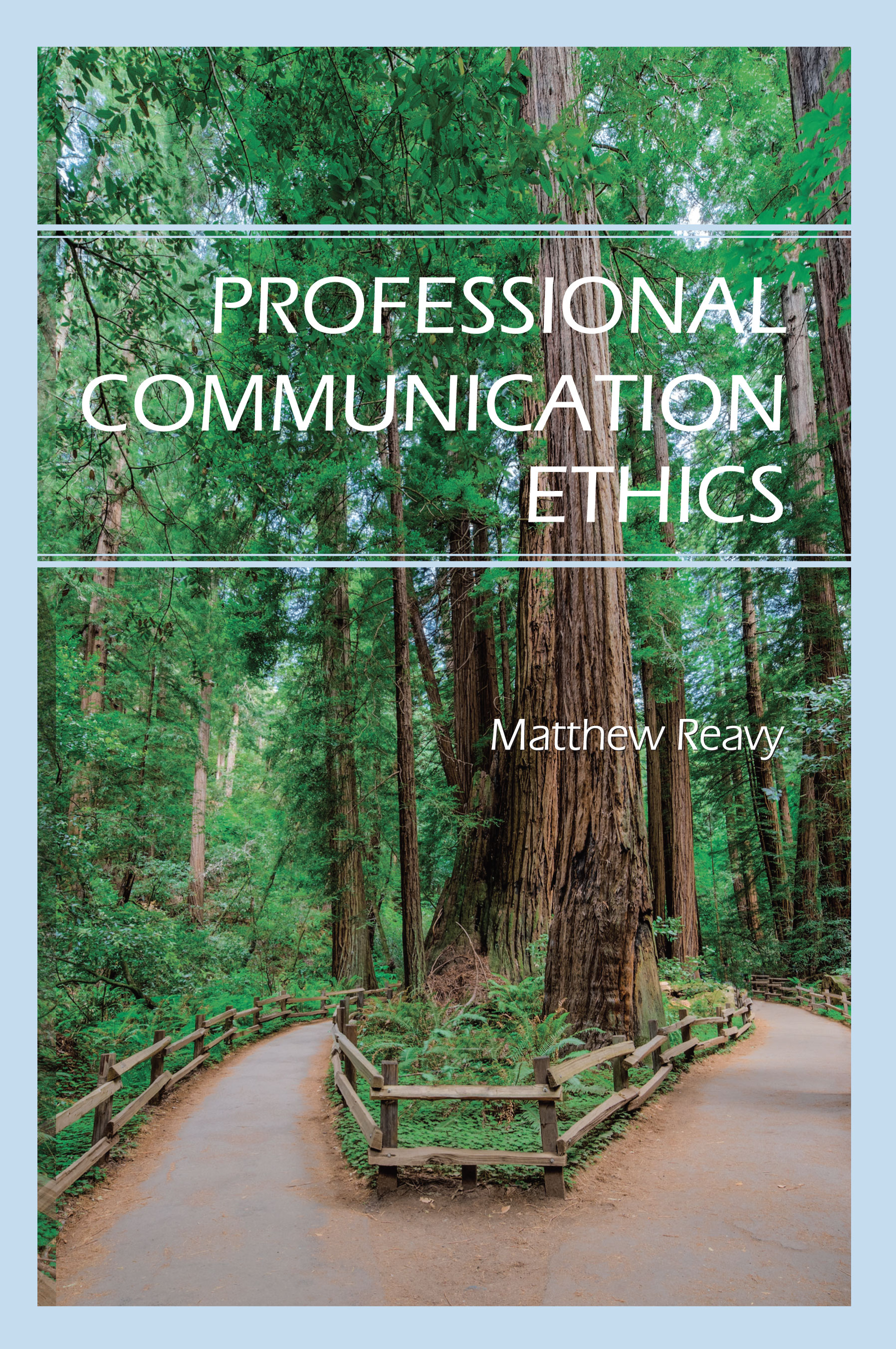1. Ethics, Morality, and the Law
2. Metaethics
3. Virtue Ethics
4. Consequentialism
5. Deontological or Duty-Based Ethics
6. Codes of Ethics
7. Rendering Ethical Judgments
8. Freedom, Responsibility, and the Public Interest
9. Truth, Accuracy, and Honesty
10. Conflicts of Interest
11. Privacy
12. Confidentiality
13. Visual Ethics
14. Framing an Ethical Future

200 pages, $31.95 list
1-4786-4896-1
978-1-4786-4896-3
© 2023
paperback
eBook availability
Similar Titles
Professional Communication Ethics
During more than a decade working in public relations, marketing, and journalism, the author encountered many ethical problems; people often differed about what constituted “right” action. As a professor, he was motivated to write a succinct book on mass communication ethics that includes sufficient background for readers to learn to reason through problems ethically and to make decisions that consider the needs of all parties affected by the consequences of actions taken.
The constant stream of information, misinformation, and images from rapidly evolving technology and social media platforms challenge media professionals to assess problematic issues and their effects on audiences. Ethical concerns mount regarding accuracy, fairness, loyalty, diversity, manipulation, and deception.
Reavy’s highly accessible work discusses the philosophical foundations of ethics, examines the strengths and weaknesses of formal ethical codes, analyzes models for making ethical decisions, and provides examples from multiple communication professions. It introduces practical, systematic processes to guide consumers in addressing ethical dilemmas in increasingly complex situations. The emphasis is on reasoning—from defining the problem to identifying who is involved to ascertaining conflicting values to applying ethical principles to reaching a decision. The six applied chapters that look at issues (public interest, truth, conflicts of interest, privacy, confidentiality, and visual ethics) conclude with a case study.
The constant stream of information, misinformation, and images from rapidly evolving technology and social media platforms challenge media professionals to assess problematic issues and their effects on audiences. Ethical concerns mount regarding accuracy, fairness, loyalty, diversity, manipulation, and deception.
Reavy’s highly accessible work discusses the philosophical foundations of ethics, examines the strengths and weaknesses of formal ethical codes, analyzes models for making ethical decisions, and provides examples from multiple communication professions. It introduces practical, systematic processes to guide consumers in addressing ethical dilemmas in increasingly complex situations. The emphasis is on reasoning—from defining the problem to identifying who is involved to ascertaining conflicting values to applying ethical principles to reaching a decision. The six applied chapters that look at issues (public interest, truth, conflicts of interest, privacy, confidentiality, and visual ethics) conclude with a case study.